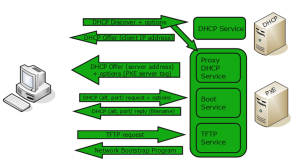Proxy DHCP (Dynamic Host Configuration Protocol) service is a critical component in network management and connectivity. In this article, we will delve into the concept of Proxy DHCP service, its functions, and its relevance, with a focus on its role alongside static ISP proxies.
Proxy DHCP Service Explained:
Proxy DHCP service is an integral part of the DHCP system, which is responsible for dynamically assigning IP addresses and other network configuration parameters to devices within a network. While traditional DHCP servers directly allocate IP addresses, a proxy DHCP server operates differently.
Key Functions of Proxy DHCP Service:
- IP Address Assignment: Proxy DHCP servers do not assign IP addresses themselves but rather assist in the process. When a client device requests an IP address, the proxy DHCP server forwards the request to a standard DHCP server. This server then assigns an IP address to the client, and the proxy DHCP server relays this information back to the client.

- Network Booting: Proxy DHCP service is particularly useful in network booting scenarios, such as Preboot Execution Environment (PXE) booting. In these cases, client devices need not only an IP address but also information about where to find the boot files.static ISP proxy. The proxy DHCP server assists in providing this additional information, allowing the client to boot from a network server.
- Compatibility: Proxy DHCP service is often employed alongside static ISP proxies in environments where compatibility with existing DHCP infrastructure is required. By acting as an intermediary, it enables the use of static ISP proxies without the need for extensive network reconfiguration.
Relevance of Proxy DHCP with Static ISP Proxies:
Static ISP proxies, which provide users with consistent IP addresses and other network settings, may require coordination with DHCP services. Proxy DHCP servers help ensure that devices receive the necessary network configuration information when connecting to a network with static ISP proxies.
Conclusion:
In summary, Proxy DHCP service is a crucial component of network management, especially in scenarios involving network booting and compatibility with static ISP proxies. It acts as an intermediary between client devices and traditional DHCP servers, facilitating the assignment of IP addresses and related configuration information. Understanding the role of Proxy DHCP service is essential for network administrators and individuals seeking to optimize network connectivity while using static ISP proxies.